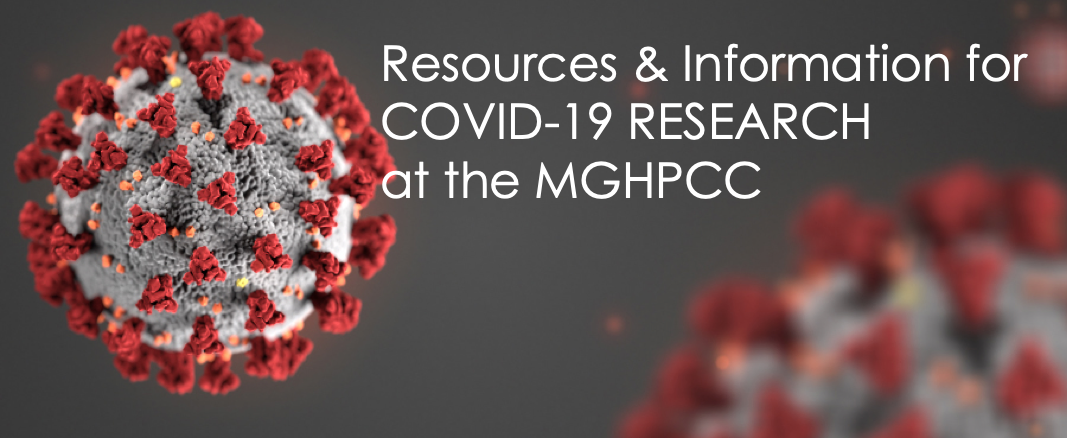
Members of the Massachusetts Green High Performance Computing Consortium are joining forces to provide broad access to the high-performance computing resources they have available, for use in projects were these resources could help to accelerate resolution of the COVID-19 crisis.
Starting today, we are offering to work with academic and commercial enterprises to provide priority access to compute and storage systems operated by all five MGHPCC members, for projects that can be accelerated by adding computing capacity.
Total available capacity, across all systems, includes more than 200,000 CPU cores, more than 2,000 recent generation GPUs, and more than 5 petabytes of temporary storage.
Since this is a cooperative effort intended to accelerate projects with significant public impact, compute and temporary storage resources will be available at no additional cost.
If you have a project that has potential to address any critical aspect of the COVID-19 crisis and would be accelerated by application of additional computational resources, please contact the MGHPCC at .